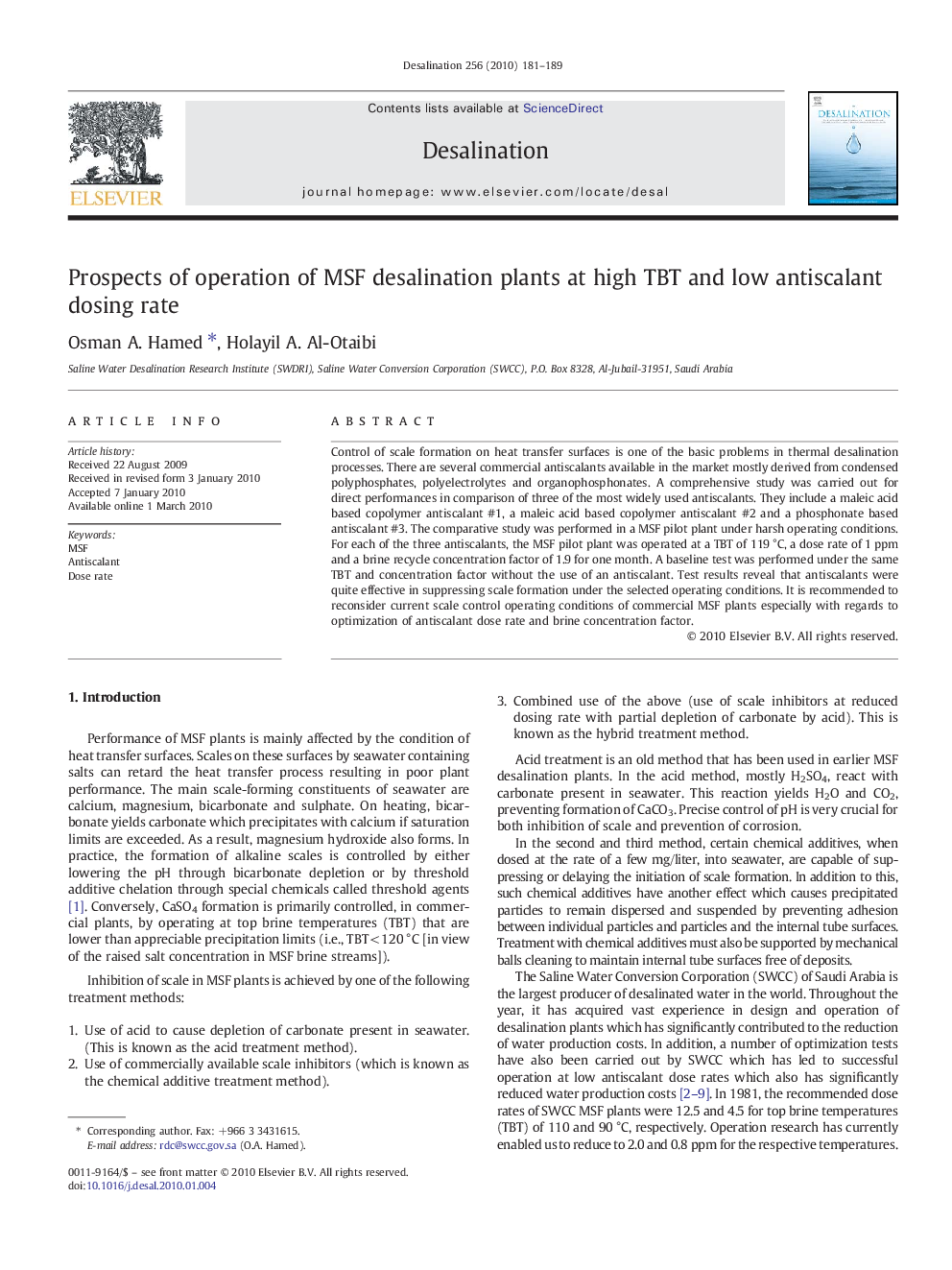| Article ID | Journal | Published Year | Pages | File Type |
|---|---|---|---|---|
| 625809 | Desalination | 2010 | 9 Pages |
Control of scale formation on heat transfer surfaces is one of the basic problems in thermal desalination processes. There are several commercial antiscalants available in the market mostly derived from condensed polyphosphates, polyelectrolytes and organophosphonates. A comprehensive study was carried out for direct performances in comparison of three of the most widely used antiscalants. They include a maleic acid based copolymer antiscalant #1, a maleic acid based copolymer antiscalant #2 and a phosphonate based antiscalant #3. The comparative study was performed in a MSF pilot plant under harsh operating conditions. For each of the three antiscalants, the MSF pilot plant was operated at a TBT of 119 °C, a dose rate of 1 ppm and a brine recycle concentration factor of 1.9 for one month. A baseline test was performed under the same TBT and concentration factor without the use of an antiscalant. Test results reveal that antiscalants were quite effective in suppressing scale formation under the selected operating conditions. It is recommended to reconsider current scale control operating conditions of commercial MSF plants especially with regards to optimization of antiscalant dose rate and brine concentration factor.
